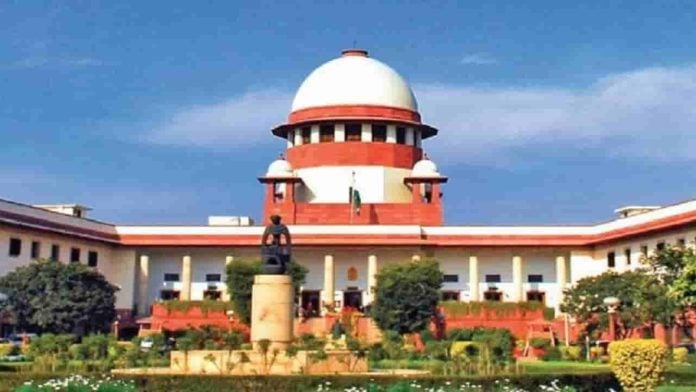The Supreme Court has received a public interest litigation (PIL) challenging the constitutional validity of the Uttar Pradesh Gangster and Anti-Social Activities (Prevention) Act, 1986 (UP Gangsters Act).
The PIL has been filed through Advocate-on-Record Ansar Ahmad Chaudhary who challenged the Section 3, 12 and 14 of the Act as well as Rules 16(3), 22, 35, 37(3) and 40 of the 2021 Rules.
These sections deal with registration of cases, attachment of properties, investigation and trial.
As per the Rule 22, a single act or omission would be sufficient to register a first information report (FIR) under the Act. Under this act the criminal history of the accused is not relevant. Thus has been described as being violative of fundamental rights given to us.
Incase an FIR is registered against a person who has committed a crime second time and against whom an FIR has already been registered, which amount to double jeopardy, in violation of Article 20(2) of the Constitution of India, the plea states.
The PIL states that the Gangsters Act and Rules do not provide any classification of accused persons. and is thus misused by the police in settling scores.
Also Read: PIL before Delhi High Court alleges toilets without doors, lack of clean drinking water
Talking about attachment of property of violators of the Act, the petitioner states that the District Magistrate is the prosecutor under the Gangsters Act and also an adjudicator under the Gangsters Rules,which itself speaks of the clear violation of the principles of natural justice.
The provision of the Act allowing police to remand accused for 60 days is challenged as being excessive.
The plea claims that under section 12 of the Act, the special court will have precedence over the trial in any other case or the base case. As a consequence, a person who may be acquitted in another case may be subsequently proceeded against under the Gangsters Act.
The plea further contends that the Act miserably fails on the touchstone of Article 14 and the parameters of non-arbitrariness mentioned therein.
The plea states that the Act gives arbitrary power to the authorities to invoke its provisions on their own satisfaction.
The plea stated that the arbitrary power of the authorities on their own satisfaction violates even the classical twin tests of classification under Article 14 evolved by this Hon’ble Court in Anwar Ali Sarkar (AIR 1952 SC 75), which said that there should be a reasonable classification based on intelligible differentia; and (11) this classification should have a rational nexus with the objective sought to be achieved.
The plea in short says that the classification in the Act must be founded on the basis of intelligible differentia.


